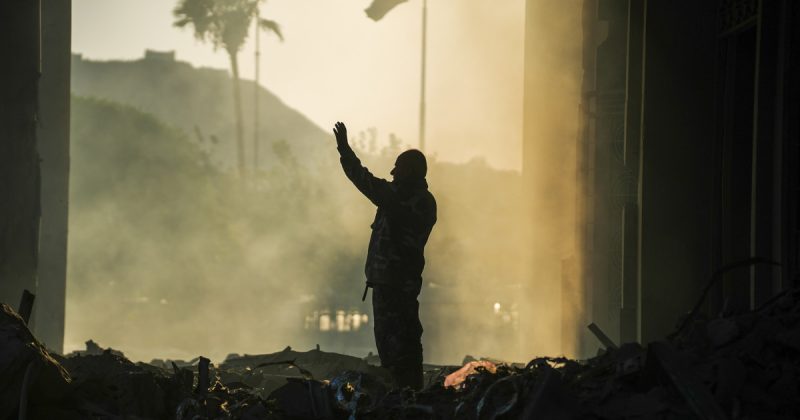
Syria’s interim president, Ahmed al-Sharaa, has accused Israel of deliberately exacerbating tensions through a series of intense airstrikes following deadly sectarian clashes in Sweida. These strikes, while ostensibly aimed at protecting the Druze community, have raised concerns about regional stability and the potential for wider conflict.
The recent violence in Sweida, involving Druze militias and Sunni Bedouin clans, threatened to unravel the uneasy peace that has prevailed since the toppling of the Assad regime. A renewed ceasefire was announced following days of intense fighting, but its longevity remains uncertain. The Syrian government has begun withdrawing forces from the region, leaving local factions responsible for maintaining security.
Israel’s response involved rare airstrikes in Damascus, purportedly designed to safeguard the Druze population and push Islamic militants away from its borders. This forceful intervention has been met with strong condemnation from Syria, which has accused Israel of deliberately undermining its stability and sowing discord among its diverse population. Despite the heightened tensions, al-Sharaa has vowed to protect the Druze community and to prevent the situation from escalating into open war with Israel. He emphasized Syria’s commitment to unity and preventing fragmentation.
The international community has expressed grave concern over the escalating violence. Secretary of State Marco Rubio highlighted the potential threat to peacebuilding efforts in Syria and confirmed ongoing communication between the US, Syria, and Israel on this critical matter. The situation underscores the fragility of Syria’s current leadership and the ongoing challenges in establishing lasting peace and stability in the region.
The events in Sweida and the subsequent Israeli strikes represent a significant test for Syria’s new leadership. The ability of interim president al-Sharaa to maintain control and prevent further escalation will be crucial in determining the future course of the country. His recent efforts to distance himself from his past as a jihadist leader and gain international acceptance are now put to the ultimate test. The events highlight the complex interplay of sectarian tensions, regional power dynamics, and the ongoing struggle for stability in a war-torn nation.










